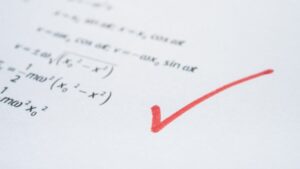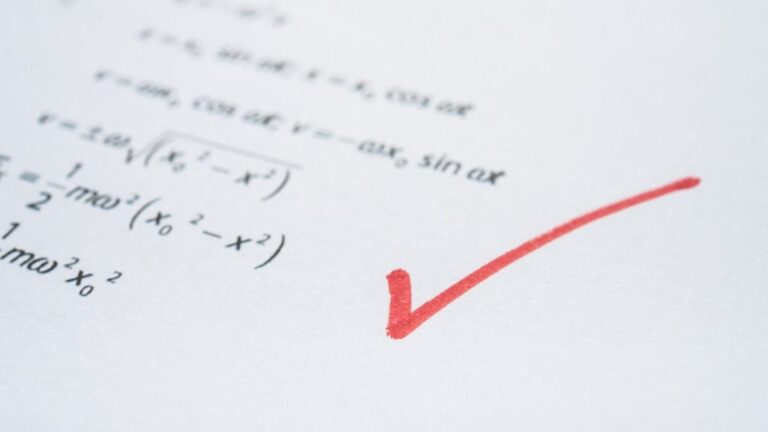The Top 5 Most Common IGCSE Maths Mistakes: Tips for Exam Success!
In this article, Sophie, who is an experienced maths teacher and iGCSE maths expert, shares the top 5 mistakes students make during exams. If you can avoid these and follow Sophie's top tips, it should help to secure a higher grade!
Preparing for IGCSE Maths exams can feel like manoeuvring through a complex maze.
IGCSE Maths exams can be challenging, and even the most dedicated students may encounter avoidable mistakes that can impact their performance.
In this blog post, we will explore some common mistakes made by IGCSE Maths students and provide valuable tips to help you avoid them.
By identifying these pitfalls and implementing effective strategies, you can improve your understanding, accuracy, and overall success in IGCSE Maths.
Let’s get started!
1. Misinterpreting the Question
One of the most common mistakes students make is misinterpreting the question.
It’s crucial to read each question carefully, paying attention to details and identifying the specific information being asked.
For example, if the question asks for the perimeter of a rectangle, make sure you don’t confuse it with the area.
Take note of the specific requirements, whether it’s finding an area, solving an equation, or identifying a pattern.
Underline or highlight the key information to ensure you understand the requirements accurately.
By understanding the question’s nuances, you can avoid unnecessary errors and provide accurate answers.
2. Incomplete or Incorrect Calculations
Another common mistake is rushing through calculations or making calculation errors.
Take your time and double-check your calculations, ensuring you perform each step accurately.
Remember to use the correct order of operations (BIDMAS/BODMAS) when simplifying expressions or solving equations.
Additionally, use a calculator effectively, paying attention to decimal points, rounding, and significant figures.
By being meticulous and thorough, you can minimise calculation errors and achieve accurate results.
3. Misapplying formulas
Misapplying formulas is another common stumbling point in IGCSE Maths.
Students often make mistakes when applying formulas, especially when dealing with complex ones.
It’s crucial to understand the variables involved in each formula and use the correct formula for the given problem.
For instance, when calculating the area of a circle, ensure you use the formula A = πr² and substitute the correct value for the radius.
Example: Find the area of a circle with a radius of 5 cm.
Incorrect Application: A = 2πr
Correct Application: A = π(5)²
By practising and familiarising yourself with the formulas, you can apply them accurately and avoid unnecessary errors.
4. Not Showing Sufficient Working
In IGCSE Maths, it’s essential to show your working, especially in questions that carry multiple marks.
Even if you arrive at the correct answer, failing to show your working may lead to the loss of marks.
Clearly demonstrate your calculations, reasoning, and problem-solving strategies.
This not only helps you organise your thoughts but also allows the examiner to follow your logic and award you marks accordingly.
5. Lack of Units or Incorrect Units
For questions involving measurements, units are crucial.
Many students forget to include units in their answers or use the incorrect units.
Always check the units given in the question and ensure your answer is in the appropriate units.
Whether it’s centimetres, metres, or other units of measurement, including the appropriate unit in your final answer showcases precision and completeness.
Overcoming common mistakes in IGCSE Maths is essential for achieving higher scores and improving overall performance.
You can avoid these pitfalls by being mindful of these mistakes and implementing effective strategies such as carefully reading and interpreting questions, performing accurate calculations, applying formulas correctly, showing sufficient working, and using appropriate units.
Remember, practice is key to developing these skills, so regularly review and revise your understanding of these concepts.
With consistent effort and attention to detail, you’ll be well on your way to success in IGCSE Maths.
Our tutors are rated 4.9 / 5 based on 1116 reviews.



Start the discussion!